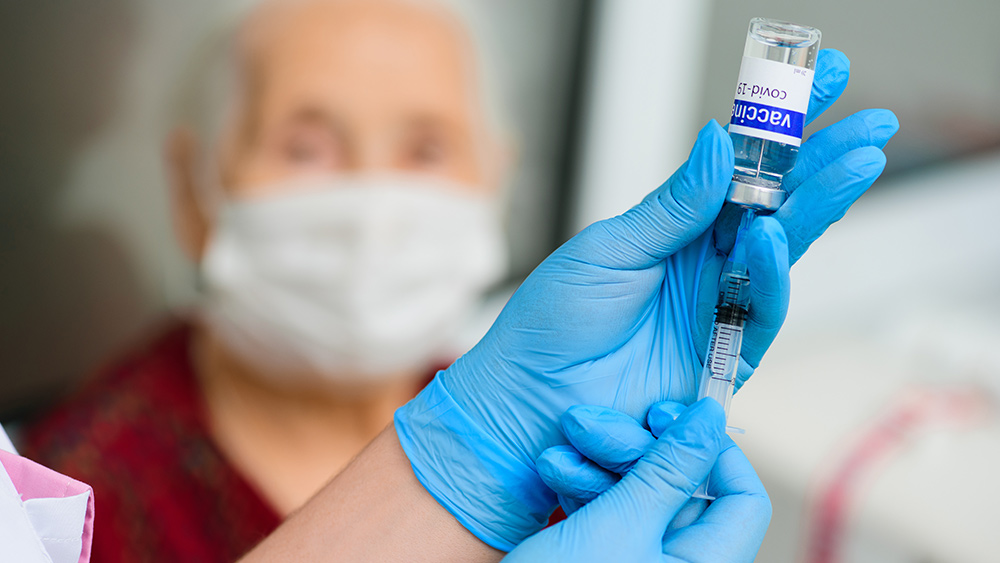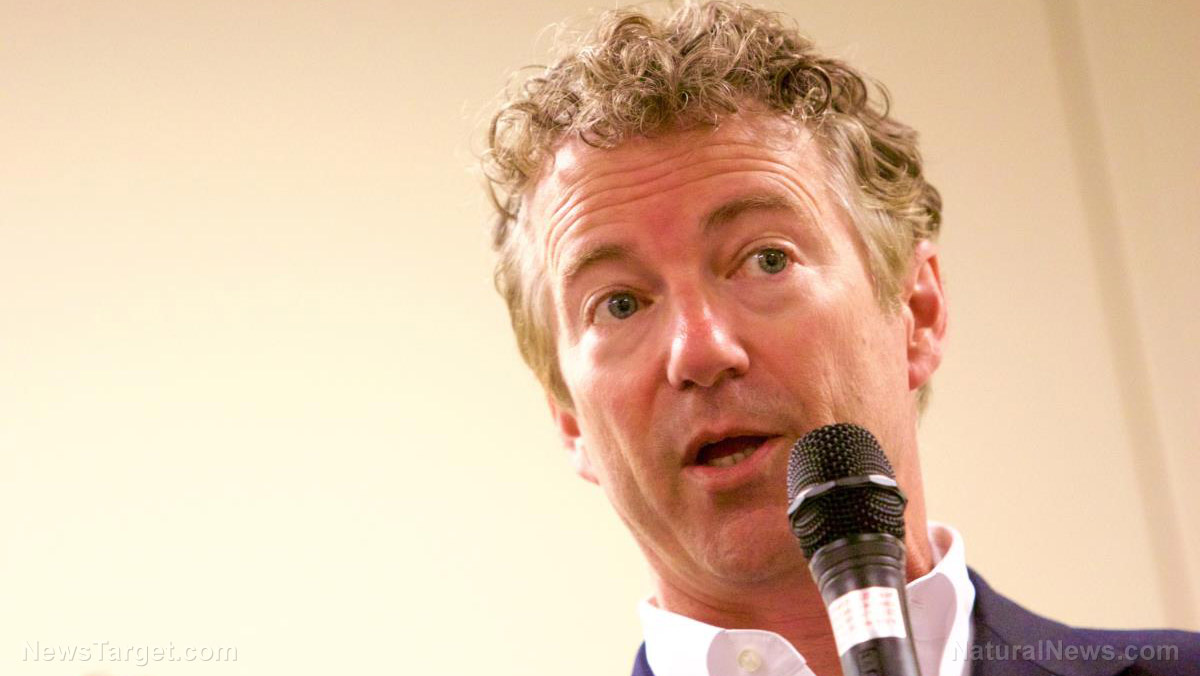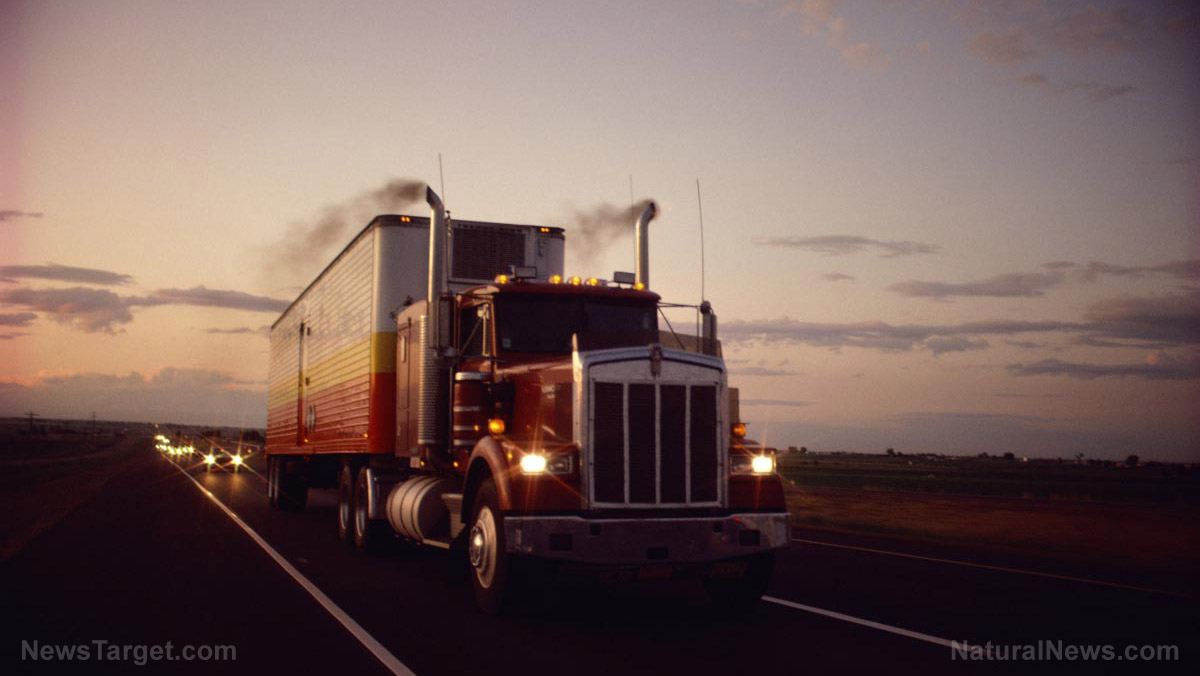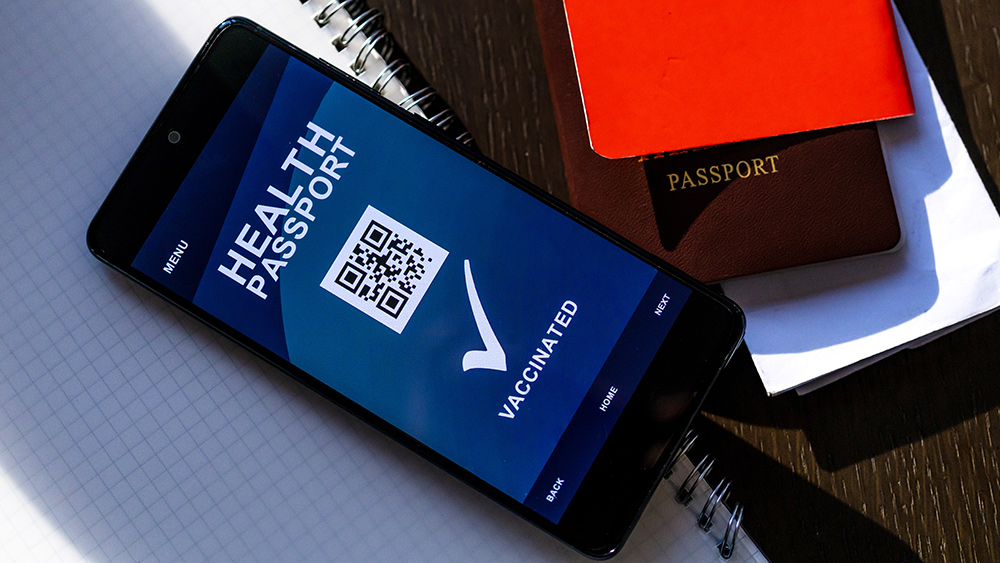Qantas chief says governments are talking about coronavirus vaccine as “a condition of entry”
03/25/2021 / By Nolan Barton

Qantas Chief Executive Alan Joyce revealed on Sunday, March 21, that many governments were talking about coronavirus vaccination as “a condition of entry.”
Joyce told the BBC that “governments are going to insist” on coronavirus vaccines for international travelers. But even without government intervention, Joyce thought airlines should enforce their own policy. “We have a duty of care to our passengers and to our crew, to say that everybody in that aircraft needs to be safe,” he said.
According to Joyce, about 90 percent of people that they have surveyed thought that it should be a requirement for people to be vaccinated before they could travel internationally. He also hinted that other airlines would follow Qantas in requiring the coronavirus vaccination for passengers traveling abroad.
“I’ve been talking with my colleagues at other airlines around the globe, and I think that’s going to be a common theme across the board,” he said.
Qantas pushed back the date it plans to resume its international flights from July to the end of October. That’s the point the Australian government hopes to have vaccinated all adults and the date for which the airline is now selling international tickets.
“The number one flight by a significant amount is Perth to London non-stop,” said Joyce.
The demand for ultra-long-haul flights indicates that passengers are trying to avoid changeovers in airports filled with other people, he noted.
Qantas has been planning for months to make coronavirus vaccination mandatory
As early as November last year, Joyce outlined his plans for Qantas to make the coronavirus vaccination mandatory for all passengers traveling internationally. He said that proof of vaccination would likely be stored in an electronic “digital passport” which is already under development by airlines and governments around the world.
“What we’re looking at is how you can have a vaccination passport, an electronic version of it, that certifies what the vaccine is, is it acceptable to the country you are traveling to,” said Joyce at the time. (Related: CBS declares vaccine passports as must-haves for 2021 summer travelers.)
“There’s a lot of logistics, a lot of technology that will be needed to put in place to make this happen, but the airlines and the governments are working on this as we speak.”
His remarks were in line with the Australian government’s National Vaccination Policy, which suggested that visitors from overseas might have to produce a vaccination certificate before boarding their flight to Australia.
“There may be circumstances where the Australian government and other governments may introduce border entry or re-entry requirements that are conditional on proof of vaccination,” the vaccination policy stated.
But the World Health Organization (WHO) doesn’t agree. “We don’t approve the fact that a vaccinations passport should be a condition for travel,” says Bernardo Mariano, the organization’s director of digital health and innovation.
According to Mariano, a unified approach from governments would be needed to make such a change work.
Aviation is vital to the global economy. The International Air Transport Association (IATA) estimated that aviation supports $1.8 trillion in global economic activity. But government restrictions due to the pandemic have led to an unprecedented fall in passenger numbers.
In the last six months of 2020, Qantas lost $800 million. During the same period in 2019, the airline had a profit of $596 million.
Australian government bails out Qantas and Virgin Australia
Australian airlines have been bailed out by the government on a few occasions during the pandemic. The Australian government announced in April last year that it would pay Qantas and Virgin Australia up to AU$165 million ($126.73 million) to maintain key domestic flight routes for two months.
Qantas, which had been considering closing some flights at the time, said in a statement that the funding would allow it, and its budget offshoot Jetstar, to increase the number of passenger flights they operated each week from 105 to 164.
It had also been reported earlier this month that Qantas workers who usually work on international routes will receive a weekly wage payment of AU$500 ($384.28), under the federal government’s $1.2 billion ($922.48 million) aviation tourism support scheme. More than 7,000 cabin crew, pilots, engineers and technicians will be receiving the payment until October.
Virgin will also receive direct funding from the federal government but will use it for training and to prepare for more flights.
Prime Minister Scott Morrison said it was crucial for Australian airlines to maintain their capacity to fly internationally.
“People have got to be in simulators, people have got to continue their training, planes need to be maintained. These are all the things that are needed to be done and you need to maintain a highly skilled workforce,” he said.
Some 8,500 Qantas employees had lost their jobs during the pandemic while thousands of others were on furlough, with the Australian government paying their wages.
Follow Immunization.news for more news and information related to coronavirus vaccines.
Sources include:
Tagged Under: coronavirus, coronavirus vaccine, digital passport, international travel, Jetstar, pandemic, Prime Minister Scott Morrison, Qantas, vaccination passport, Virgin Australia, World Health Organization
RECENT NEWS & ARTICLES
COPYRIGHT © 2017 VACCINE JIHAD





















